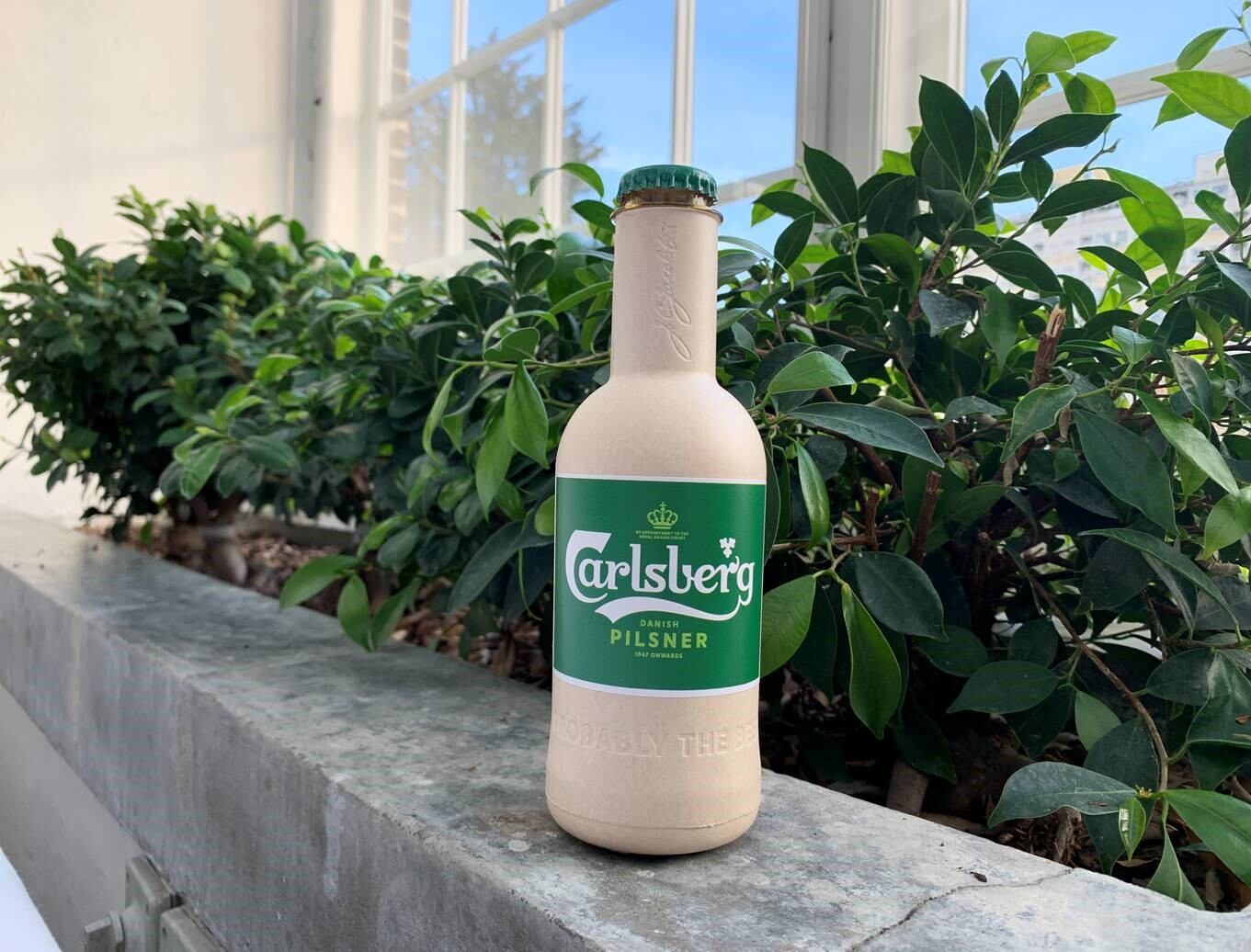Dutch biochemical company Avantium says it is on track to open its first commercial production plant by the end of 2023. The facility – in Delfzijl, the Netherlands, will produce 5,000 metric tonnes of FDCA per annum. FDCA is the key building block for polyethylene furanoate (PEF), a 100% plant-based, fully recyclable biopolyester. According to Avantium, PEF has the potential to replace various packaging materials such as PET, glass or aluminium in typical applications like bottles for soft drinks, water, alcoholic beverages and fruit juices. It expects bottles made with PEF to appear in Europe’s supermarkets by the beginning of 2024.
The Euronext Amsterdam-listed company’s plans have been boosted after it raised around €28 million by issuing 5.2 million new shares and announced a deal with Belgium-based plastic packaging supplier Resilux for the supply of a fixed volume of PEF resin from the Avantium plant.
It has also signed collaboration agreements to develop sustainable bottles with an undisclosed ‘major global food and beverage brand owner’, the Japanese specialty chemical company Toyobo, the US specialty polyester film producer Terphane, and the Dutch beverage bottling company Refresco.
The world’s first ‘paper’ beer bottle
These deals come on top of Avantium’s existing Plastic Bottle Project: a collaboration with Coca-Cola, spirits firm The Absolut Company and Carlsberg to jointly develop several PEF applications. This venture has already led to Carlsberg unveiling a prototype for the Green Fibre Bottle, which it claims is the world’s first ‘paper’ beer bottle made from sustainably-sourced wood fibres that is both 100% bio-based and fully recyclable. The Danish beer giant has added its partnership with the project will assist its targets to achieve zero carbon emissions at its breweries and reduce its value chain carbon footprint by 30% by 2030.
Thanks to these developments, Avantium is confident PEF will be broadly introduced to the market around the globe and with high-value applications varying from monolayer bottles, multilayer bottles, and film.
Tom van Aken, Chief Executive Officer of Avantium told FoodNavigator that PEF plastic boasts attractive sustainability credentials because it uses no fossil fuels (unlike polyethylene terephthalate, or PET), can be recycled and will also degrade in nature much faster than normal plastics. It can further enable shelf life extension and thus help reduce waste.
The material is made using sugars from corn, wheat or beet and retains carbon dioxide better than conventional PET. “If you have carbonated drinks, you need to keep the CO2 in your bottles,” he explained. “Our material is 5-10 times better than PET in keeping C02 in the bottle - so in that sense it's almost like glass in terms of how good it is in keeping carbonation in your drinks. But it is equally good for keeping air and oxygen out of the bottle so is good for everything that is sensitive to oxygen such as beer, juice, smoothies or coffee. It also has higher heat stability and is a bit stronger than PET, so it has significant safety performance benefits over it.”
Around 300 million tonnes of plastic is made from fossil fuels globally every year, most of which is not recycled and can take hundreds of years to decompose. According to van Aken, many plastic bottles aren’t recycled because they use multiple polymers such as polyethylene, polyurethane and nylon in conjunction with PET. “We're trying to replace these with a monolayer PEF film which can be easily recycled,” he said. “That will mean a substantial improvement over existing packaging materials.”
Meanwhile, Avantium says its plant-based material degrades ‘100 times faster than PET’. “This is a product designed for recycling,” stressed the CEO. “But if it does end up in nature it will degrade much faster than conventional plastics.”
Eventually, Avantium plans to use plant sugars from sustainable sourced biowaste so that the rise of plant plastic does not affect the global food supply chain. And while its target to make 5,000 tonnes is a modest one, it expects its production to grow as demand for renewable plastics climbs.
Paying a premium for sustainability
Cost remains a challenge for the scaling up of PEF production, however. While PET currently costs around €1 per kilo, for example, PEF is between €8-10 per kilo. However, van Aken said that's not a like-for-like comparison. “We're competing against materials where they might be using nylon in sparling water bottles to keep the carbonation in the bottles,” he eleborated. “But the downside is that if the bottle is a combination of PET and nylon, it cannot be recycled. If you take away the nylon and replace it with PEF, you have a bottle than you can subsequently recycle because PEF and PET can mix and recycle.”
He also pointed out that today’s end consumers are prepared to pay a premium for sustainable products. “More research shows that there's a significant percentage of consumers that are perfectly prepared to pay a few cents extra for something which is more sustainable. I think the contracts that we've just signed show that economics is not a prohibited aspect.”
And while the company’s current plans will suit "more niche high-value applications", he expects prices to drop as the company builds larger-scale plants.
“From 2026 onwards, we expect the next stage will be to build larger-scale plants in Asia and the US which means the product will be built on a much larger scale and much more materials will become available at significantly lower cost. Then the material will compete with all glass packaging, all alumina cans and with many of the multi-layer packaging products that you see out there."
“It can be used across the soft drinks sector in juice and waters, but also in everything that is air sensitive so coffee and meat packaging.”


